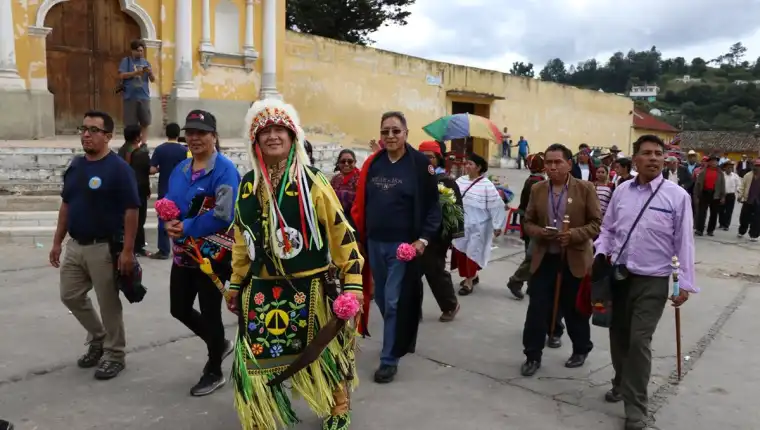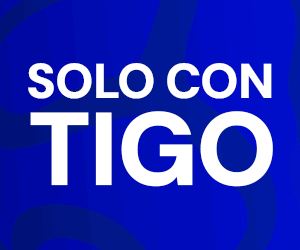Estimated reading time: 7 minutes
When anti-corruption candidate Bernardo Arévalo won Guatemala’s presidency in August, his urban supporters took to the streets in celebration. Two months later, they are still there, not in celebration but in protest against challenges to Arévalo’s election led by the country’s attorney general. This month, the protests went national when Indigenous authorities called a strike demanding the attorney general’s resignation. The participation of Guatemala’s marginalized Indigenous peoples in nationwide protests holds both peril and promise. Instability in the impoverished rural hinterland could send additional waves of migrants toward the U.S. border. But the Indigenous population’s defense of elections could also prove a watershed moment for Guatemalan democracy.
The Indigenous authorities of Totonicapán, a municipality in Guatemala’s western highlands, have long been known for preserving their Maya K’iche identity as fiercely as they protect the region’s native pine forests from the illegal logging that threatens water sources and wildlife. Known as the 48 Cantones(cantons) for the dozens of small communities that comprise it, the Indigenous government of “Toto” has managed to maintain local institutions, based on customary law and communal service, amid the turmoil of Guatemala’s post-colonial history of exploitation, dictatorship and civil war. Although zealous in defending Indigenous rights and interests, the 48 Cantones have rarely sought to influence Guatemalan national politics.
But on October 1 the president of the 48 Cantones, Luis Pacheco, announced an indefinite national strike demanding the resignation of Attorney General Consuelo Porras, whom the Indigenous leaders accuse of trying to reverse Arévalo’s victory, by a decisive 24-point margin, in the August 20 presidential election. The attorney general, who is under U.S. sanctions for obstructing earlier anti-corruption investigations, has launched investigations into Arévalo’s party and the electoral process, seizing ballot boxes in an unprecedented challenge to the country’s Supreme Electoral Tribunal, which had certified the vote.
Arévalo has called Porras’ moves a “coup in slow motion.”
The Totonicapenses were soon joined by Indigenous leaders from across the country, including authorities from the municipalities of Sololá, Nebaj, Chichicastenango, and by the Xinka Parliament, which represents non-Maya Indigenous peoples in southeastern Guatemala. While indigenous protesters blocked rural highways, urban protesters took over many city streets. In Guatemala City, students, activists and neighborhood groups sometimes turned street closures into block parties, with music, dancing, and even impromptu yoga sessions, amid calls for the attorney general’s ouster.
The protests have hit Guatemala’s economy hard, especially the formal sector. According to Agexport, a trade group, road closures have caused exporters some $366 million in losses. The government has asked the Organization of American States (OAS) to mediate a dialogue between the government and protest leaders, though outgoing President Alejandro Giammattei has said he has no power to fire the attorney general.
Nor do the Indigenous leaders show any sign of backing down, making clear they are beholden to no political parties or leaders, including the president-elect. “Even if Arévalo asks us to stop the protests, we are not going to do it,” Pacheco said. “Any negotiation is between the indigenous peoples and the government.”
Defending an Election
Arévalo’s unexpected surge to second place in the June general election, followed by his landslide victory in the August runoff, seemed to herald a “democratic spring” in a country beset by corruption, criminal violence and widespread poverty. The government had systematically excluded opposition candidates during the 2023 campaign, ignoring Arévalo only because he seemed unlikely to win.
As the son of a reformist president who ruled during a brief democratic interlude in the 1940s, Arévalo, a former diplomat with international peacebuilding experience, enjoyed high prestige. But his party, the Semilla (“Seed”) Movement, seemed unlikely to expand beyond a narrow base of largely urban, center-left, voters in a largely conservative country. Their quixotic campaign centered on dismantling the so-called “pact of the corrupt,” a network of clientelist power brokers and corrupt businesspeople, which has long dominated Guatemalan politics.
Arévalo’s anti-corruption platform, however, struck a chord with voters tired of the systemic graft that has siphoned money away from public education, security, health and infrastructure, fueling the exodus of Guatemalans seeking a better future in the United States. Young urban voters helped generate enthusiasm for his campaign, and they were joined in the final round by surging support in the country’s impoverished interior.
Although nearly half of Guatemala’s people self-identify as Indigenous, they have remained marginalized politically, economically and culturally. Divided into more than 20 distinct language communities, Indigenous groups have tended to focus on local, immediate concerns, such as the environmental and social impact of extractive projects or community access to affordable electricity.
Guatemala, which has Central America’s largest population and biggest economy, is classified as an upper-middle income country as measured by GDP per capita ($4,603 in 2020), according to the World Bank. But more than half of the population qualifies as poor, surviving on about $2.15 a day. And Guatemala suffers some of the world’s highest rates of childhood malnutrition. In the hardest hit municipalities — which tend to be rural and Indigenous — stunting affects 90 percent of children under five years old.
Nonetheless, Indigenous leaders chose to launch a national campaign in favor of democracy, avoiding more divisive issues related to income and inequality. “The ancestral groups, who were the first to initiate this social protest, have been quite astute,” Álvaro Pop, former chair of the United Nations Permanent Forum on Indigenous Issues, told USIP. They are focusing “only on specific demands pertaining to the political crisis, not including socioeconomic needs that could taint the strike’s objectives.”
The Indigenous leaders who are now flexing their political muscles are unlikely to return to the status quo ante, writes Irma Alicia Velásquez Nimatuj, a Maya K’iche anthropologist and journalist: “These organizations, these collectives, are now going to make Giammattei pay [for his neglect]. They are showing how important they are and how wrong he has been during his presidency for not taking them into account.”
The Risks of Violence
Remarkably, in a country known for high rates of violent crime, the demonstrations have been largely peaceful and well-organized, with protest leaders allowing the passage of emergency vehicles and some foodstuffs. Although riot police have used tear gas on several occasions to clear roads and stop incidents of vandalism in downtown Guatemala City — which both authorities and protest leaders blamed on infiltrators — security forces have largely shown restraint.
That patience may be ending, however. Minister of Governance Napoleón Barrientos resigned Oct. 17 after Attorney General Porras called for his removal. Barrientos had resisted calls to remove protesters by force, stating he preferred dialogue over confrontation.
And in an ominous reminder of Guatemala’s violent, organized crime, unidentified gunmen fired on both protesters and police, killing one person in the municipality of Malacatán, near the border with Mexico, an area known for drug and migrant smuggling.
Such bloodshed could serve as a pretext for a crackdown that might endanger the transfer of power to Arévalo in January. But using force against widespread, and, so far, largely peaceful protests — especially those led by the country’s Indigenous peoples — risks igniting violence in a country that emerged from a bloody 36-year civil war only in the mid-1990s.
It could also force even more Guatemalans to embark on the dangerous journey across Mexico toward the United States. Lack of hope for a better future sends streams of migrants northward each year. In August alone, U.S. border patrol agents encountered Guatemalans nearly 38,000 times at the border, most of whom were traveling in family units.
The stakes are high not only for Guatemala, but also for Latin America. Both the U.S. government and the OAS have called for the peaceful transfer of power to President-elect Arévalo in January. And both have condemned attempts by judicial authorities — including the seizure of ballot boxes held by the independent electoral tribunal — to undermine the legitimacy of elections deemed free and fair by local and international observers.
The continued, proactive support of the United States and other international actors — both publicly and privately — is essential to protect Guatemalan democracy. The United States has already sanctioned key actors, including the attorney general and the anti-corruption prosecutor who is leading investigations into Semilla and the electoral process. Some Guatemala experts, such as former U.S. Ambassador Stephen McFarland, argue that in addition to canceling visas, the United States should consider using the Magnitsky Act to freeze the U.S. assets of those responsible for human rights violations or acts of significant corruption.
Guatemalans themselves are playing the lead role in defending the electoral results and Arévalo’s inauguration on January 14. Their political future depends largely on their own persistence, patience and commitment to peaceful protest, especially among the country’s poorest, historically marginalized citizens, including the Indigenous authorities of Totonicapán’s storied 48 Cantones. (https://www.usip.org/publications/2023/10/guatemala-indigenous-leaders-take-democracy-campaign-nationwide)





































